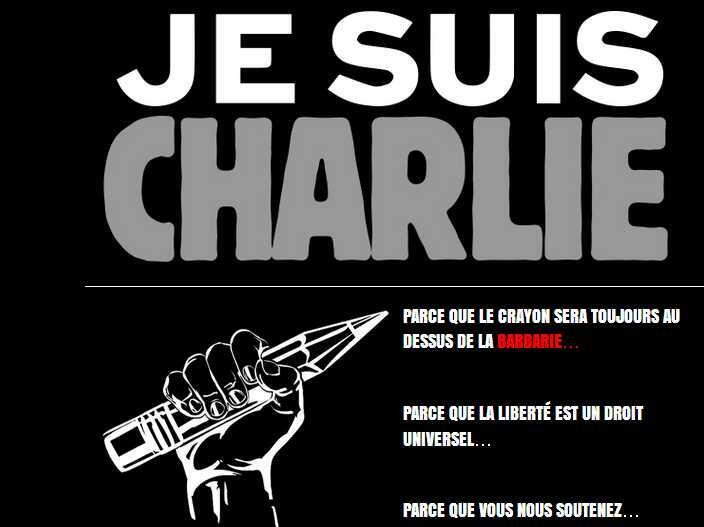African press review 3 February 2015
Issued on:

Five months on, the tragedy of the Nigerian church hostel disaster in which 116 people lost their lives continues to make front page news in South Africa.
Eighty-one South Africans were among the 116 people who died on 12 September last year when a guest house belonging to the Synagogue Church Of All Nations in Lagos collapsed.
According to the South African financial paper BusinessDay, families of the 11 South African victims whose bodies still remain in Nigeria will know later today which of them will be returned this week.

A South African National Defence Force aircraft with a repatriation team left for Lagos yesterday to bring back the remains of those victims that have been positively identified, according to the Presidency in Pretoria.
However, says BusinessDay, it is still not clear if all or only some of the bodies will be coming home.
France is also, sadly, making front page news in the same paper. In an article entitled "Intolerance and extremism on the rise across the European Union," we learn that the number of anti-Muslim incidents in France has soared since last month's Paris attacks, with 128 registered over two weeks. Yesterday, Frans Timmermans, deputy president of the European Commission, told European deputies that rising levels of extremism and intolerance across the 28-nation bloc were targeting Jews, Muslims, homosexuals and even women.
Botswana, the world’s biggest diamond producer, expects economic growth to slow slightly to 4.9 per cent this year from an estimated 5.2 per cent in 2014, the Finance Minister Kenneth Matambo said in his budget speech yesterday.
Botswana has the highest credit rating in Africa. International agency Moody’s rates the country A2, with a stable outlook.
Namibian Prime Minister Hage Geingob yesterday denied that a delegation of the ruling Swapo party visited former apartheid assassin Eugene de Kock in prison to offer him an opportunity to live in Namibia.
"If De Kock comes to Namibia he will be killed," Geingob said.
"No Swapo members visited him in prison, and if he comes here, he comes at his own risk. He drowned Namibians in the Atlantic Ocean during Namibia's liberation struggle," Geingob is quoted as saying.
It is alleged that several hundred Namibian freedom fighters captured by apartheid South Africa were put in small aeroplanes, injected with a sedative and then thrown out of the planes into the ocean off the Namibian coast.

De Kock was granted parole by a South African court last Friday, in the spirit of national reconciliation, and to mark his co-operation with other courts.
The former police colonel, who is now 66 years old, was serving two life sentences for six murders, plus 212 years for other crimes.
Some Kenyan teachers are in fighting form on the front page of this morning's Standard newspaper.
The Nairobi-based daily reports that more than 2,000 teachers posted to parts of North Eastern region defied an order by their employer to report for duty yesterday, saying their demands had not been met.
The teachers are in dispute with the government on security issues following a series of attacks targeting members of their profession last December. They were told by the authorities that those who had not returned to work this week would be replaced.
The Standard says the defiant teachers yesterday accompanied Kenya National Union of Teachers Secretary General Wilson Sossion to the Directorate of Criminal Investigations headquarters in Nairobi where he had been summoned.
Sossion was wanted for questioning over allegations of incitement to violence and disobedience in the ongoing standoff between the disgruntled staff and the Teachers Service Commission which employs them.
The Standard also reports that Kenyan Foreign Affairs Cabinet Secretary, Amina Mohammed, says three more countries are needed to sign up to a Kenyan-backed protocol to establish an African court to try crimes against humanity.
Mohammed explained that 11 countries out of the required 14 had already signed the Malabo Protocol which is supposed to lead to the establishment of an African court of justice, which will eventually try the sort of cases currently heard before the International Criminal Court in the Dutch city of The Hague .
The main story in sister paper, the Daily Nation, announces that Kenya has been granted over 600 million euros in precautionary loan support from the International Monetary Fund.
Yesterday, the IMF approved a 400 million euro loan under its Stand-By Arrangement facility and another 200 million under its Stand-By Credit facility.
Both are one-year loans that the IMF said Nairobi does not plan to draw on unless external shocks lead to an actual balance-of-payment need.
The Kenyan economy is expected to grow 6.1 per cent in the year to 30 June, picking up to 7.0 per cent in the following twelve months.
But the IMF said that poor rains have hit the agricultural sector, and security problems are hampering tourism.
Daily newsletterReceive essential international news every morning
Subscribe